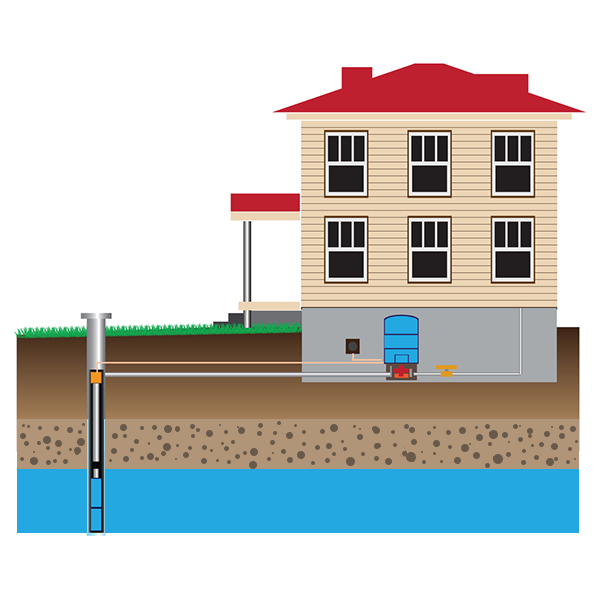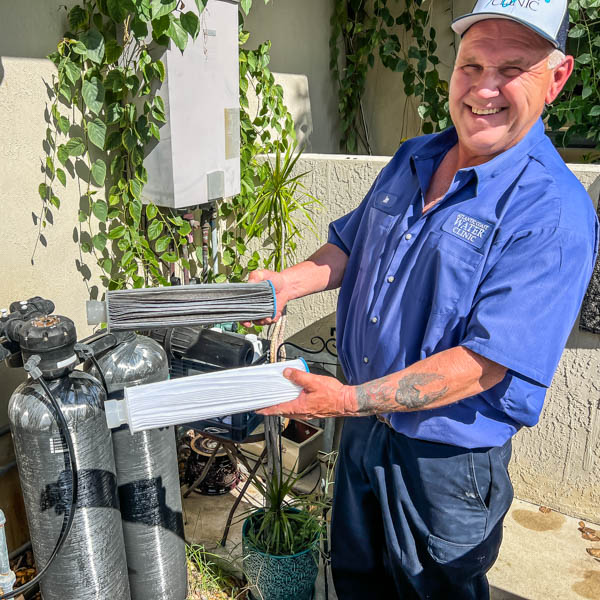The Difference Between Well & City Water
If you have the opportunity to tap into a well on your property, you’re probably interested in knowing the differences between well water and city (municipal) water. The simple answer is that there are a few differences, and most people consider well water to be generally healthier, safer and better for normal household use.
Atlantic Coast Water Clinic of South Florida would like to share a little about these two types of water with people considering using a well and people who just want to know the differences between the two water sources.
 Wells
Wells
Wells are dug on your property and receive water from natural underground sources. A pump is installed to bring the water to your home. While maintenance, repairs, testing and general upkeep of the well cost money, the water itself does not.
Municipal water
Most city and county areas provide water for folks who live in their jurisdictions. City water is typically treated with chlorine, chloramines and other chemicals to remove pathogens and bacteria. The Environmental Protection Agency (EPA) requires that city water chlorine levels be no greater than 4 mg. per delivered liter.
You pay for this water, but the water system is managed and maintained by your provider.
Water management
Municipal water is overseen by the municipality and monitored by the EPA. When a pipe breaks or the ground caves in or there’s a machinery failure, the city is responsible for fixing the problem. The homeowner has no responsibility in managing the water supply. With a well, anything that goes wrong is the homeowner’s responsibility. If you run a well, you’re going to pay for all repairs, such as if the pump goes out or a source of contamination enters the water supply.
You’re also responsible for having your water tested for contaminants. Impurities sometimes found in well water include bacteria, heavy metals, parasites and various chemicals that could infiltrate your well through runoff from area farms or your septic system. Testing allows you to know about contamination from any source.
Is well water safer to drink than city water?
This is a question that water treatment companies get a lot. Municipal water, as noted above, is treated to reduce potentially harmful contents to what the EPA considers a “safe” level. It’s rare to hear of people getting sick from drinking city water. Well water comes from the ground and therefore doesn’t start out with a lot of chemicals that can make the water unsafe and taste bad. If tested and maintained regularly, well water can be a very safe choice for drinking.
Water treatment systems
More and more homeowners – including users of city water and well water – are adding water purification systems, including whole-house water filters, to their homes. A good purification system will block a wide range of potential pollutants in both city and well water. It will treat your water so that it tastes great and is enjoyable to drink. Adding a water softener will prevent ugly water spots on dishes and cookware and keep limescale from building up on faucets.
 Call your South Florida water experts
Call your South Florida water experts
Whether you have a well or use a city water supply, Atlantic Coast Water Clinic can provide you with excellent water treatment products that can be installed quickly and easily in your home. We’ll consult with you about water purification systems, water softeners and other products that will deliver the safest and best-tasting water you’ve ever had.
Speak with a water treatment professional at (772) 283-4767 or get in touch with our simple contact form. We serve Port St. Lucie, Fort Pierce, Hobe Sound and other South Florida areas.


 772-283-4767
772-283-4767